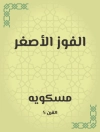In ‘The Phantom World; or, The Philosophy of Spirits, Apparitions, &c, &c, ‘ Augustin Calmet presents a meticulous exploration of spirits, ghosts, and the supernatural through a blend of philosophical inquiry and empirical examination. Written in the early 18th century, Calmet employs a scholarly yet accessible literary style, drawing on biblical texts, folklore, and contemporary accounts to delve into phenomena often dismissed by rationalist thought. The book serves as a notable intersection of religious scholarship and the burgeoning fascination with the paranormal during the Enlightenment, offering readers a comprehensive perspective on the cultural manifestations of the supernatural. Augustin Calmet was a Benedictine monk and biblical exegete, which lent his investigations a distinct theological framework. His background in scripture and history provided him a unique lens on the popular beliefs of his time, prompting him to intertwine spirituality with rational analysis. Calmet sought to bridge the divide between faith and reason, illuminating the nuances of human belief in the supernatural while remaining critical of credulousness. For those intrigued by the realms of the uncanny and the philosophy behind belief systems, Calmet’s ‘The Phantom World’ is an essential read. It challenges modern dismissal of supernatural phenomena and invites readers to reflect on their own perceptions of reality, making it a profound exploration of humanity’s longstanding interplay with the unseen.
Circa l’autore
Augustin Calmet, a renowned 18th-century French Benedictine monk, is distinguished for his scholarly contributions to theology and biblical exegesis. Born on February 26, 1672, in Ménil-la-Horgne, France, Calmet took his monastic vows in 1688 and was ordained a priest in 1696. He became one of the most respected biblical scholars of his time, with his erudition resonating notably in works such as his comprehensive ‘Commentary on the Bible’ and the ‘Dictionary of the Holy Bible.’ His inquisitive mind also ventured into the realm of the supernatural, which is best exemplified by his seminal work, ‘The Phantom World; or, The philosophy of spirits, apparitions, &c, &c.’ This book, published posthumously in English in 1850, was originally titled ‘Traité sur les apparitions des esprits et sur les vampires ou les revenans de Hongrie, de Moravie, &c.’ and first appeared in French in 1746. In ‘The Phantom World, ‘ Calmet embarked on a rational exploration of spectral phenomena, discussing ghosts, hauntings, and vampirism with academic rigor, yet without discounting the possibility of their existence. His dedication to empirical observation and historical insight place him among the precursors to paranormal inquiry. His literary style, rooted in Enlightenment principles of reason and clarity, made complex theological and metaphysical topics accessible to a broader audience. Calmet’s enduring legacy lies in his meticulous scholarship and his ability to bridge the gap between the sacred and the allegedly supernatural. He passed away on October 25, 1757, in Senones, where he had been abbot of the storied Saint-Pierre Abbey.












